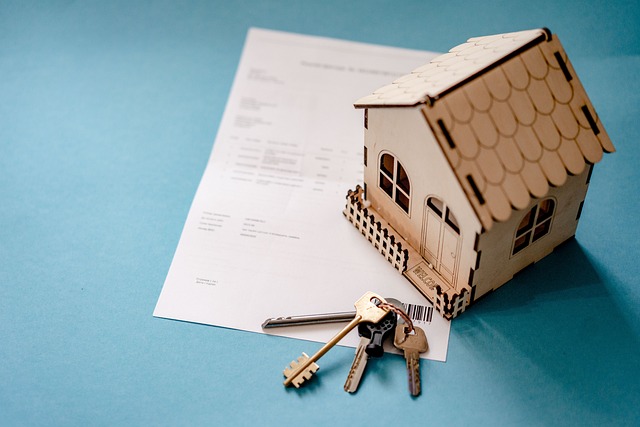Are you looking for a solid investment opportunity that can stand the test of time? Look no further than silver. In a world where financial markets can be unpredictable, precious metals like silver have proven their worth time and time again. Not only does it possess undeniable beauty, but it also holds immense potential for investors seeking stability and long-term growth.
Join us as we dive into the captivating realm of silver investment and uncover its hidden advantages. Get ready to unlock the power of precious metals and pave your way towards a prosperous future.
Historical Resilience
 Silver’s enduring appeal lies in its historical resilience as a precious metal. Throughout centuries, silver has retained its value, serving as a medium of exchange, a store of value, and a hedge against inflation. Its role in currency, coupled with its intrinsic value, positions silver as a time-tested investment that has weathered economic fluctuations and stood firm amid market uncertainties. For example, silver price per ounce increased from $4 in 1970 to over $50 in 1980, during a period of high inflation and economic uncertainty.
Silver’s enduring appeal lies in its historical resilience as a precious metal. Throughout centuries, silver has retained its value, serving as a medium of exchange, a store of value, and a hedge against inflation. Its role in currency, coupled with its intrinsic value, positions silver as a time-tested investment that has weathered economic fluctuations and stood firm amid market uncertainties. For example, silver price per ounce increased from $4 in 1970 to over $50 in 1980, during a period of high inflation and economic uncertainty.
Industrial Demand
Unlike gold, silver boasts extensive industrial applications, driving demand beyond its status as a precious metal. From electronics to solar panels and medical instruments, silver’s conductivity and antibacterial properties make it indispensable in various industries. This dual role as a precious and industrial metal grants silver a unique advantage, as its value is not solely contingent on investment demand but also influenced by essential technological advancements.
Affordable Accessibility
Silver’s accessibility makes it an attractive option for a broad spectrum of investors. With a lower price point compared to gold, silver enables individuals to enter the precious metals market without the hefty upfront costs associated with gold investment. This affordability not only enhances diversification opportunities but also democratizes access to tangible assets, making silver an inclusive investment choice.
Relationship With Gold
The relationship between silver and gold is often likened to a symbiotic dance. While gold is considered the ultimate safe-haven asset, silver tends to amplify the movements of gold, exhibiting higher volatility. This dynamic interplay can present strategic opportunities for investors. During periods of economic uncertainty, the silver market may experience amplified gains, providing investors with a potential hedge against market turbulence.
Investment Potential
Silver’s investment potential extends beyond its role as a hedge. Its volatility, when approached with strategic understanding, can be leveraged for capital gains. Investors with a keen understanding of market dynamics and the ability to capitalize on silver’s price fluctuations may find themselves in a favorable position to enhance their investment returns.
Silver as a Portfolio Diversifier
Diversification is a cardinal rule in investment strategy, and silver serves as an effective portfolio diversifier. Its low correlation with traditional assets like stocks and bonds makes it an invaluable addition to a well-rounded investment portfolio. By including silver, investors can mitigate risk and enhance the overall stability of their holdings, particularly during periods of economic volatility.

Silver’s Potential for Future Growth
As technology continues to advance, silver’s role in innovative industries is poised for expansion. With increasing demand for renewable energy sources, electronic devices, and medical technologies, silver stands at the forefront of these transformative waves. Investing in silver is not just a nod to its historical significance but also a forward-thinking approach that aligns with the ongoing evolution of industries reliant on this precious metal.
In the intricate tapestry of investment, silver emerges as a versatile and strategic asset. Its historical resilience, dual role in industry and investment, affordability, symbiotic relationship with gold, investment potential, diversification benefits, and prospects for future growth collectively make a compelling case for its inclusion in a well-structured investment portfolio…



 Before approaching any financing options, it is essential to evaluate your financial standing. This includes assessing your credit score, debt-to-income ratio, and available cash reserves. Lenders often consider these factors to determine your eligibility for loans. A good credit rating and a healthy financial profile will increase your chances of obtaining favorable loan terms.
Before approaching any financing options, it is essential to evaluate your financial standing. This includes assessing your credit score, debt-to-income ratio, and available cash reserves. Lenders often consider these factors to determine your eligibility for loans. A good credit rating and a healthy financial profile will increase your chances of obtaining favorable loan terms. When seeking financing for your real estate investment, it is crucial to prepare a comprehensive business plan. A well-presented plan demonstrates your understanding of the investment, including market analysis, projected returns, and an exit strategy. This document will not only help secure funding but also foster trust and confidence in potential lenders or partners.
When seeking financing for your real estate investment, it is crucial to prepare a comprehensive business plan. A well-presented plan demonstrates your understanding of the investment, including market analysis, projected returns, and an exit strategy. This document will not only help secure funding but also foster trust and confidence in potential lenders or partners.
 Another challenge of investing in gold IRA companies is evaluating the quality of the gold you purchase. Not all gold is created equal, and some gold IRA companies may offer lower-quality gold or gold coins that the IRS does not recognize. It’s essential to thoroughly research the gold IRA company you are considering and ensure that the gold they offer meets the IRS standards for investment-grade gold.
Another challenge of investing in gold IRA companies is evaluating the quality of the gold you purchase. Not all gold is created equal, and some gold IRA companies may offer lower-quality gold or gold coins that the IRS does not recognize. It’s essential to thoroughly research the gold IRA company you are considering and ensure that the gold they offer meets the IRS standards for investment-grade gold.

 CoinPayments is a popular staking platform that supports many cryptocurrencies, including Bitcoin, Ethereum, Litecoin, and Dogecoin. CoinPayments also offers several features, including 24/hr customer support, an intuitive user interface, and multiple payment options.
CoinPayments is a popular staking platform that supports many cryptocurrencies, including Bitcoin, Ethereum, Litecoin, and Dogecoin. CoinPayments also offers several features, including 24/hr customer support, an intuitive user interface, and multiple payment options. BitStake is a unique staking platform that supports different cryptocurrencies, including Bitcoin. BitStake also offers an intuitive user interface and multiple payment options. One of the enormous benefits of using BitStake is that you can stake Bitcoins to get started. This allows users to invest in one of the most popular cryptocurrencies and earn passive income. Additionally, BitStake offers an intuitive user interface and multiple payment options, making it easy to use.
BitStake is a unique staking platform that supports different cryptocurrencies, including Bitcoin. BitStake also offers an intuitive user interface and multiple payment options. One of the enormous benefits of using BitStake is that you can stake Bitcoins to get started. This allows users to invest in one of the most popular cryptocurrencies and earn passive income. Additionally, BitStake offers an intuitive user interface and multiple payment options, making it easy to use.